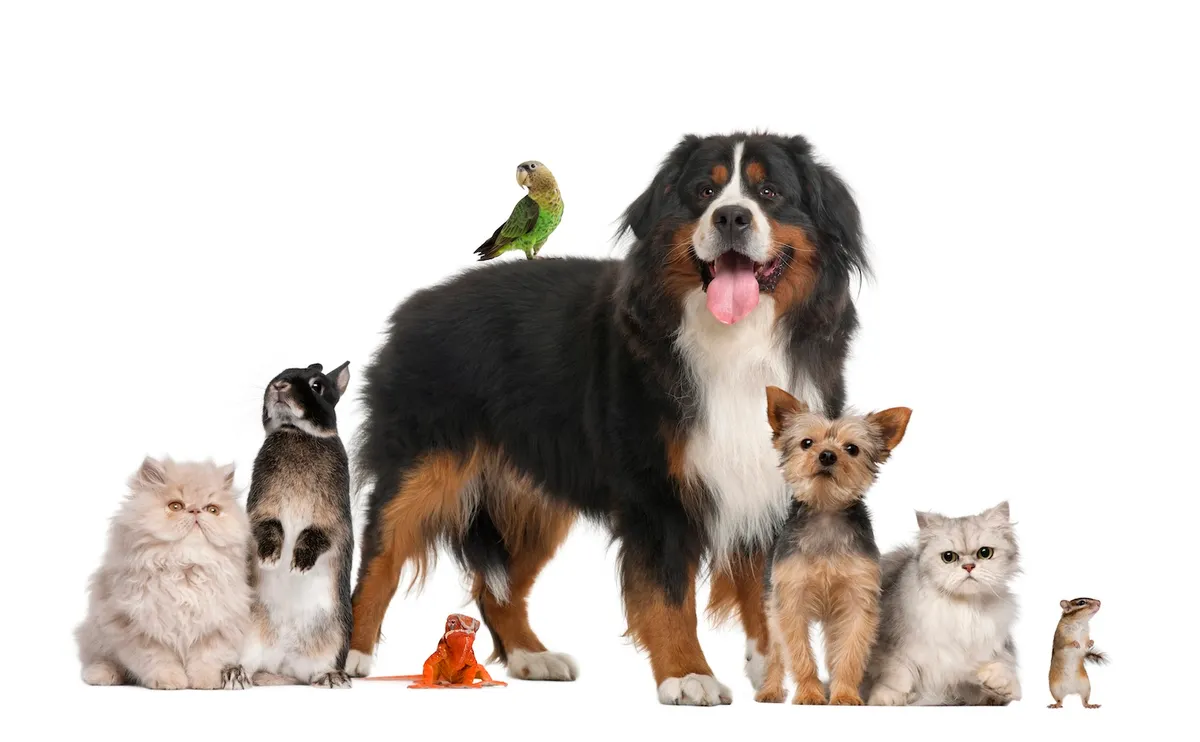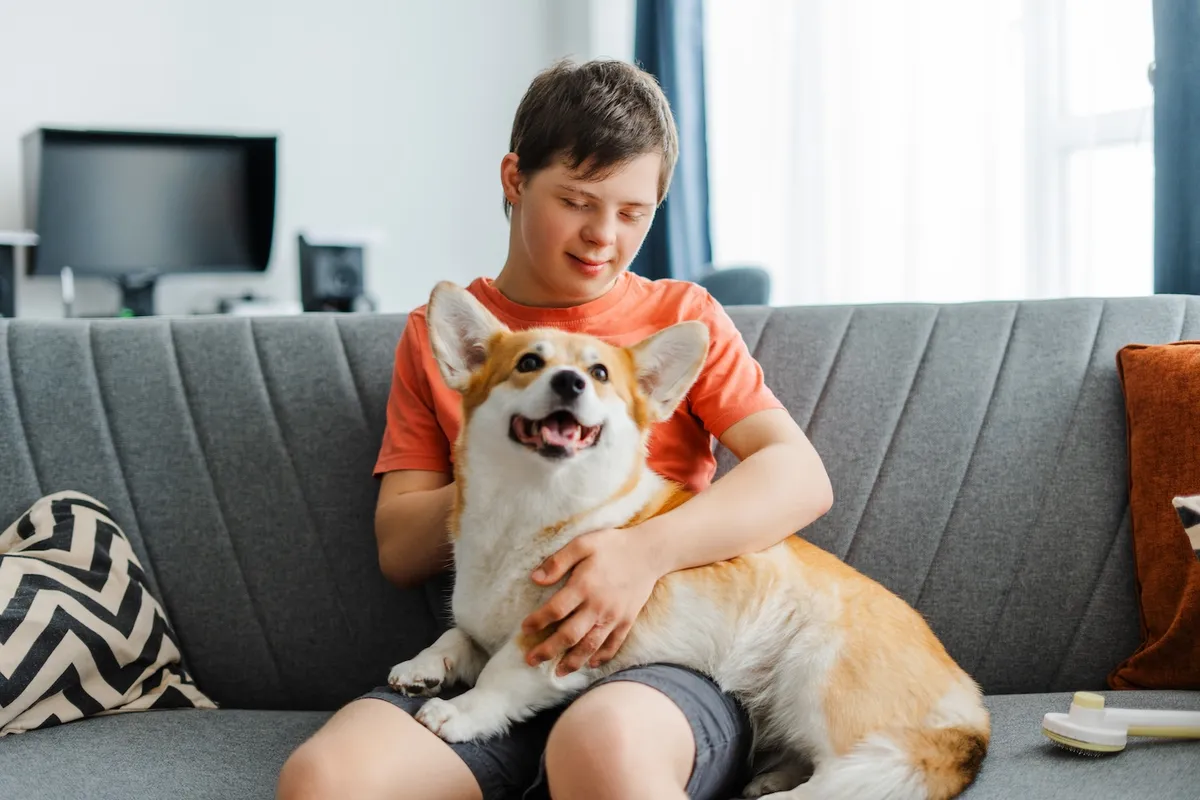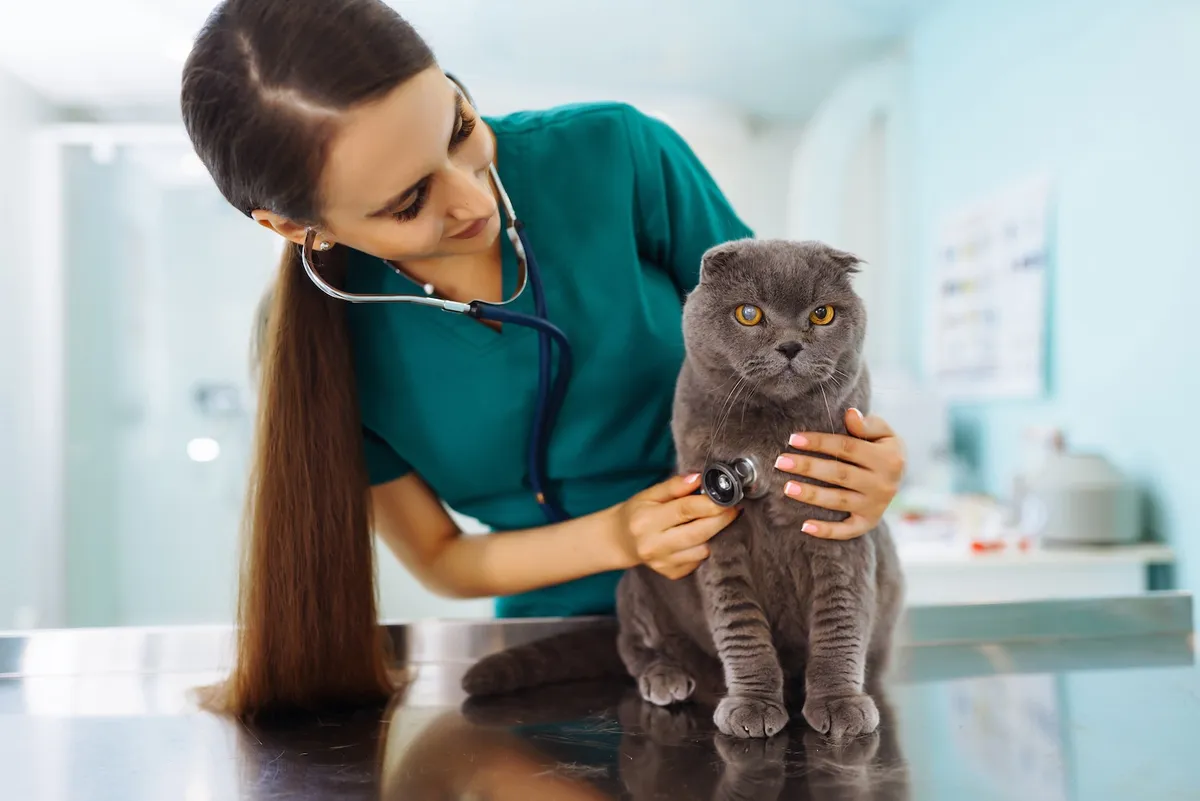Starting your journey with a pet is thrilling and important. Choosing a pet is more than just picking a cute animal. It’s about finding a perfect match for your life. You need to think carefully about many things to make sure you and your pet will get along well.

There’s no single best pet for everyone. Each pet type has its own special joys and challenges. Dogs are loyal and always there for you, while cats like their space but show love in their own way. Small mammals, birds, reptiles, and fish offer different experiences too. By thinking about your options, you can pick a pet that will bring you joy and companionship for a long time.
Key Takeaways
- Pet selection is a significant decision that impacts your lifestyle
- Consider factors like time commitment and living space
- Different pets offer unique companionship experiences
- Assess your ability to meet a pet’s long-term needs
- Choose a pet that aligns with your lifestyle and preferences
- Responsible pet ownership involves careful planning
Understanding the Importance of Pet Selection
Choosing a pet is a big decision that can change your life. It brings joy and love but also responsibilities. Let’s see why picking the right pet is so important.
The impact of pets on our lives
Pets can make us happier and healthier. They comfort us when we’re down and make us laugh. Dogs, for example, encourage us to move more by needing walks.
“A pet is the only thing on earth that loves you more than you love yourself.” – Josh Billings
Responsibility and commitment
Owning a pet isn’t just fun. It means feeding, cleaning, and caring for another living being daily. You’ll need to make time for vet visits, grooming, and play. Some pets also need training.
Long-term considerations
Long-term pet ownership is a big commitment. Pets live for different lengths of time. A hamster might live a few years, but a parrot could outlive you! Think about how long you’re ready to commit.
| Pet Type | Average Lifespan | Daily Care Time |
|---|---|---|
| Dog | 10-13 years | 2-3 hours |
| Cat | 12-18 years | 1-2 hours |
| Hamster | 2-3 years | 30 minutes |
| Parrot | 20-50 years | 3-4 hours |
Before getting a pet, make sure you’re ready for the long term. Think about your future plans and if a pet fits into them. With the right choice, pet companionship can be a great joy in life.
Assessing Your Lifestyle and Living Situation
Creating a pet-friendly lifestyle means looking at your daily routine. Do you work long hours? Are you always on the move or prefer staying home? Your living situation greatly affects which pet is right for you.
Space is crucial when thinking about pet compatibility. A small apartment is great for a cat or hamster, but a big house is better for larger dogs. Think about your activity level too. An active person might want a high-energy dog as a workout buddy. Someone who likes a quiet life might prefer a calm cat or a gentle reptile.
It’s important to talk about this with your family or roommates. A pet changes everyone’s life, so everyone needs to agree. Make sure your living situation allows the pet you want.
“Choosing a pet is like finding a new family member. It’s essential to make sure they’ll fit seamlessly into your life and home.”
Each pet has its own needs. Some need daily walks, while others are happy with a spot by the window. By thinking about your lifestyle and living situation, you’ll find the perfect pet.
Which Pet to Choose?
Choosing the right pet is a big decision. Let’s look at different pets to help you decide.
Dogs: Man’s Best Friend
Dogs are known for their loyalty and come in many sizes. They need regular exercise, training, and socializing. Whether you want an energetic retriever or a calm bulldog, there’s a dog for everyone.
Cats: Independent Companions
Cats have unique personalities, from playful to quiet. They’re perfect for busy homes. Cats need some playtime but are mostly independent.
Small Mammals: Low-Maintenance Options
Hamsters, guinea pigs, and rabbits are great for small spaces. They’re easy to care for and can be very loving.
Birds: Feathered Friends
Birds are smart and social pets. They need interaction and can live a long time. Parakeets and cockatiels are good choices for beginners.
Reptiles and Fish: Unique Pet Experiences
Reptiles and fish offer special experiences. They need special care but can be interesting to watch and interact with.
| Pet Type | Space Needed | Time Commitment | Lifespan |
|---|---|---|---|
| Dogs | Medium to Large | High | 10-15 years |
| Cats | Small to Medium | Medium | 12-18 years |
| Small Mammals | Small | Low to Medium | 2-8 years |
| Birds | Small to Medium | Medium to High | 5-50+ years |
| Reptiles/Fish | Varies | Low to Medium | 5-20+ years |
Think about your lifestyle, space, and time when choosing a pet. Comparing different pets can help you find the best fit for your home and heart.
Time Commitment and Care Requirements
Choosing a pet means knowing how much time you’ll need for care. Different pets need different amounts of attention. Let’s look at the time needed for various pets to help you decide.

Dogs need a lot of daily care. They require walks, playtime, and training. Cats are more independent but still need attention and play. Small mammals like hamsters or guinea pigs need their cages cleaned and time to play.
Birds love daily interaction. Fish and reptiles might seem easy, but their homes need regular cleaning and watching. Think about your schedule before picking a pet to make sure you can care for it.
| Pet Type | Daily Care Time | Weekly Maintenance |
|---|---|---|
| Dogs | 2-3 hours | Grooming, bath |
| Cats | 1-2 hours | Litter box cleaning |
| Small Mammals | 30 minutes – 1 hour | Cage deep clean |
| Birds | 1-2 hours | Cage cleaning, food prep |
| Fish | 15-30 minutes | Tank cleaning, water change |
These are just basic guidelines. Some pets might need more or less time based on their type, age, and needs. Be honest about how much time you can give to ensure the best care for your pet.
Space and Housing Considerations
When picking a pet, think about where you live. There are many pet-friendly housing options. Let’s look at how to find the right pet for your home.
Indoor Pets vs. Outdoor Pets
Indoor pets do well in a stable home. Cats, hamsters, and fish are great for inside. Outdoor pets like some dogs need room to move and play. Think about your home’s setup and outdoor space when choosing between indoor and outdoor pets.
Apartment-Friendly Options
You can have a pet even if you live in an apartment. Cats, small dogs, rabbits, and guinea pigs are good for small spaces. They don’t need big areas for exercise and fit well in apartments.
Pets for Homes with Yards
If you have a yard, you have more pet options. Big dogs love to run and play outside. Some cats like to go outside in safe areas. A yard lets you add things like doghouses or chicken coops for your pets.
| Housing Type | Suitable Pets | Considerations |
|---|---|---|
| Studio Apartment | Cats, Fish, Hamsters | Limited space, noise restrictions |
| Larger Apartment | Small Dogs, Cats, Birds | Moderate space, potential balcony |
| House with Yard | Large Dogs, Cats, Chickens | Ample space, outdoor maintenance |
Creating a safe home for pets is more than just having space. Make sure you have the right toys, comfy spots, and a safe place for your pet.
Financial Aspects of Pet Ownership
Owning a pet brings joy, but it’s important to know the costs. The cost of pet care varies a lot based on the pet you have. Expenses like food and vet visits can add up fast.
For cats, yearly care costs are usually between $500 and $1,000. Dogs can cost more, with yearly expenses from $1,500 to $3,000. These costs include food, check-ups, and basic supplies.

Your budget for pet supplies should include things like beds, toys, and grooming tools. Remember to include ongoing costs like flea prevention and dental care. It’s smart to save for unexpected vet bills too.
| Expense Category | Cats (Annual) | Dogs (Annual) |
|---|---|---|
| Food | $200 – $400 | $400 – $900 |
| Routine Vet Care | $100 – $200 | $200 – $400 |
| Toys and Treats | $50 – $100 | $100 – $200 |
| Litter/Waste Bags | $150 – $200 | $50 – $100 |
| Total Estimate | $500 – $900 | $750 – $1,600 |
Pet insurance can help with unexpected vet bills. Prices depend on coverage, but it can save you money over time. Look for low-cost vet clinics in your area for regular care to keep costs down.
Remember, the love and companionship pets give are worth more than anything. With careful planning, you can have a happy, healthy life with your pet without spending too much.
Health and Allergy Concerns
When choosing a pet, think about health and allergy concerns. This helps ensure a happy, healthy life with your pet. Let’s look at some important factors to consider.
Hypoallergenic Pet Options
If you have pet allergies, consider hypoallergenic pets. These pets don’t produce as many allergens. Dogs like Poodles, Bichon Frises, and Maltese are good choices. For cat lovers, Siberian and Balinese breeds are also good options.
Common Pet-Related Health Issues
Dogs and cats face different health challenges. Dogs often have hip dysplasia and dental issues. Cats may have urinary tract problems and obesity.
Small mammals like rabbits can get dental and digestive problems. Knowing about these issues helps with prevention.
| Pet Type | Common Health Issues |
|---|---|
| Dogs | Hip dysplasia, Dental problems, Allergies |
| Cats | Urinary tract issues, Obesity, Dental disease |
| Small Mammals | Dental problems, Digestive issues, Respiratory infections |
Regular Veterinary Care
Regular vet visits are key for your pet’s health. These visits help catch problems early and keep your pet current on shots. Going to the vet once a year or every two years can save you money by preventing big health issues.
Being a responsible pet owner means budgeting for vet visits, unexpected medical costs, and pet insurance. Putting your pet’s health first means a long, happy life together.
Adoption vs. Buying: Making an Informed Decision
Choosing between pet adoption and buying can be hard. Animal shelters give pets a second chance at a loving home. Many pets in shelters are already fixed and vaccinated, which saves you money and time.

Pet stores sometimes partner with rescue groups, offering another way to adopt. If you want a certain breed, look for responsible breeders. But, avoid puppy mills and other places that put profit over animal care.
Before deciding, visit shelters or breeders to meet pets. This way, you can connect with a pet and make a choice that’s right for your family.
| Adoption | Buying |
|---|---|
| Lower cost | Higher cost |
| Saves a life | Specific breed choice |
| Often vaccinated/spayed | Known history |
| Mixed breeds available | Predictable traits |
Whether you adopt or buy a pet, the key is to give them a loving, responsible home. Think about your lifestyle, what you want, and the many pets waiting for homes. This will help you make the best choice.
Conclusion
Finding the perfect pet is an exciting journey that needs careful thought and planning. You must consider your lifestyle, living space, and financial readiness. This helps you be ready for the responsibilities of pet ownership.
Whether you like dogs, cats, or reptiles, there’s a pet for everyone. Remember, getting a pet is a big commitment. It means giving love, care, and dedication to make sure you and your pet are happy together.
Take your time to look at different pets and learn about their needs. This careful approach will help you find a pet that fits your life and brings you joy. With the right preparation and mindset, you’ll soon enjoy the rewarding bond of having a pet.
FAQ
What factors should I consider when choosing a pet?
Think about your lifestyle and living situation. Also, consider how much time you have and your budget. Check if you or someone in your home has allergies. Make sure the pet fits into your daily life and meets its needs for exercise, socializing, grooming, and care.
What are the benefits of pet ownership?
Pets offer health benefits for both your body and mind. They provide companionship and emotional support. But, remember, they need a lot of time, effort, and money throughout their lives.
How much time commitment is required for different pets?
Dogs need a lot of time for walks, training, and being social. Cats like playtime and need their litter boxes cleaned. Small mammals, birds, reptiles, and fish also need daily care and their homes maintained.
What living space is suitable for different pets?
Cats and small mammals do well in apartments. Dogs might need a yard or a place to play outside. Fish tanks and reptile terrariums need a special spot indoors. Make sure your home is safe and has the right toys and places for your pet to rest.
How much does pet ownership cost?
Every year, owning a cat costs about
FAQ
What factors should I consider when choosing a pet?
Think about your lifestyle and living situation. Also, consider how much time you have and your budget. Check if you or someone in your home has allergies. Make sure the pet fits into your daily life and meets its needs for exercise, socializing, grooming, and care.
What are the benefits of pet ownership?
Pets offer health benefits for both your body and mind. They provide companionship and emotional support. But, remember, they need a lot of time, effort, and money throughout their lives.
How much time commitment is required for different pets?
Dogs need a lot of time for walks, training, and being social. Cats like playtime and need their litter boxes cleaned. Small mammals, birds, reptiles, and fish also need daily care and their homes maintained.
What living space is suitable for different pets?
Cats and small mammals do well in apartments. Dogs might need a yard or a place to play outside. Fish tanks and reptile terrariums need a special spot indoors. Make sure your home is safe and has the right toys and places for your pet to rest.
How much does pet ownership cost?
Every year, owning a cat costs about $1,000, while dogs cost around $3,000. This doesn’t include the first costs. You’ll need to pay for food, vet visits, grooming, toys, supplies, training, pet-sitting, and emergency vet care.
Are there hypoallergenic pet options?
No pet is completely hypoallergenic, but some breeds shed less. This might be better for people with allergies. Do your research and meet the pets before you decide.
Should I adopt or buy a pet?
Think about adopting from shelters or rescue groups. Many pets there are looking for a home. If you want a specific breed, find a reputable breeder. Avoid puppy mills. Weigh the pros and cons of adopting versus buying to make a good choice.
,000, while dogs cost around ,000. This doesn’t include the first costs. You’ll need to pay for food, vet visits, grooming, toys, supplies, training, pet-sitting, and emergency vet care.
Are there hypoallergenic pet options?
No pet is completely hypoallergenic, but some breeds shed less. This might be better for people with allergies. Do your research and meet the pets before you decide.
Should I adopt or buy a pet?
Think about adopting from shelters or rescue groups. Many pets there are looking for a home. If you want a specific breed, find a reputable breeder. Avoid puppy mills. Weigh the pros and cons of adopting versus buying to make a good choice.
RelatedRelated articles



